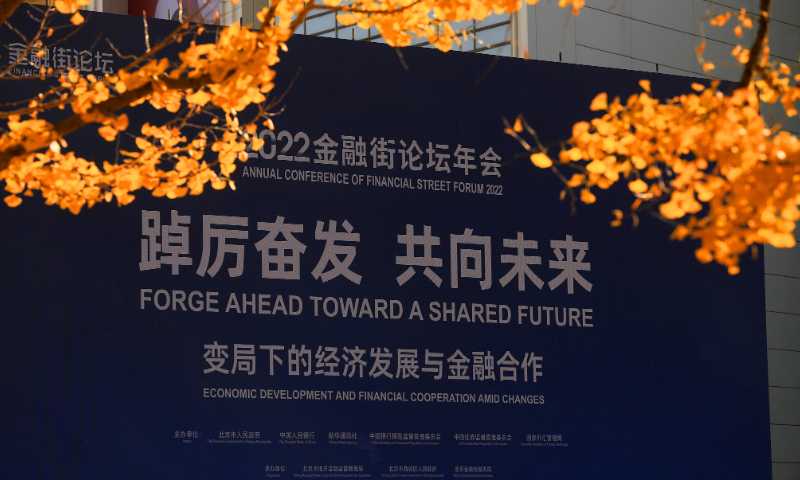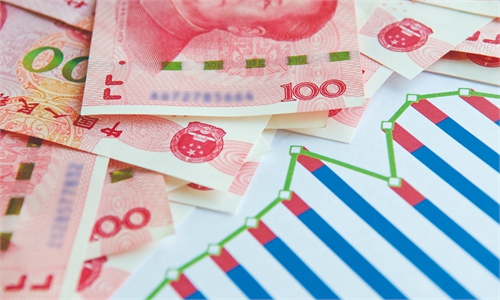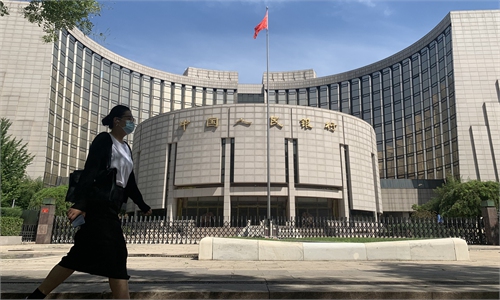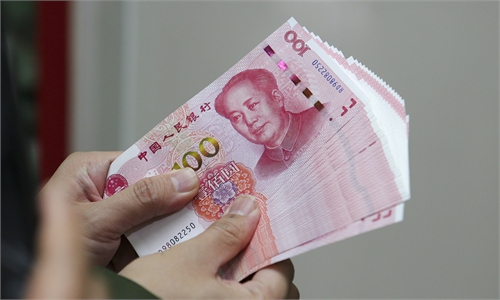
Annual Conference of Financial Street Forum 2022 Photo: VCG
China's cross-border capital flows are stable and there is great potential for global capital to be allocated, given the international appeal of yuan financial assets, an official at the State Administration of Foreign Exchange (SAFE) said on Tuesday.
Since the beginning of 2022, China's foreign-related economic activities have remained active and the foreign exchange market has become significantly more resilient, providing a relatively sound foundation for strong and effective management of cross-border capital flows, said Lu Lei, deputy administrator at SAFE, at the 2022 Financial Street Forum.
According to Lu, in the first three quarters of this year, China had a current account surplus of $310.4 billion, the highest in history and up 56 percent year-on-year.
"There is still a significant net inflow of direct investment and cross-border capital flows are steady. At present, foreign capital accounts for less than 5 percent of China's capital market and bond market. There is great potential for global capital to be allocated," said Lu.
Lu noted that despite fluctuations in the global financial market, the yuan's financial assets still have strong international appeal and relatively independent income performance, which is supported by the recovery and improvement of the Chinese economy and the sound structure of the country's balance of payments.
Nicolas Aguzin, CEO of Hong Kong Exchange and Clearing Limited (HKEX), also said on Tuesday at the Financial Street Forum that with deepening reforms and innovation in connectivity, the size of the Chinese mainland's financial market is expected to increase to more than $100 trillion in the next decade or so.
According to Aguzin, HKEX recently visited Saudi Arabia, the United Arab Emirates and Singapore to share investment opportunities in the stock market in the Hong Kong Special Administrative Region.
Throughout the trip, Aguzin said he felt that there was significant interest in Chinese assets.
Lu noted that at present, developed economies are generally raising interest rates under pressure from inflation, and there is an intensive interest rate hike trend around the world. The currency markets of emerging economies are under pressure, and many currencies have experienced considerable fluctuations.
Under such circumstances, Lu said that the key to managing cross-border capital flows under the new security pattern is to balance openness and security.
In view of the practical needs of policy spillover effects and capital flow risk management, an IMF report in April pointed out that preventive management of excessive cross-border capital inflows should be carried out in advance.
The report further explained that cross-border capital flow management is necessary to solve the problem of capital flights in developing countries, and the international community should respect the degree and mode of opening-up chosen by each country according to its national conditions.
The international community should foster a fairer and more just international environment for developing countries, it said.
Global Times



